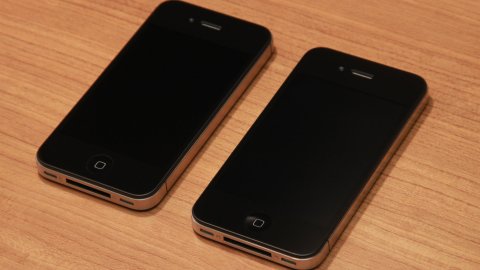Can You Draw the Apple Logo from Memory?

Try to draw the Apple logo, right now — without cheating. The internet will wait.
Done? How confident were you before you started? And how sure are you of your accuracy now that it’s on paper? BPS Research Digest writes that Adam Blake and his team sought to find out just the same thing. The idea was to see how the most recognizable logo held up in our long-term memories when we’re bombarded with brands every day.
Blake and his colleagues found 85 undergraduate students willing to participate in the exercise — a mixture of Apple and Windows PC users. The researchers asked them to draw the Apple logo (simple enough) then scored them based on angle of the leaf, size and location of the bite in the apple, and overall shape. Out of all these students, only one earned a perfect score, while seven got close to perfection, and the remainder made quite a few errors in their replications. Students were then asked to rate how confident they were in their drawings. Most of them were able to recognize that their drawings didn’t match expectations. The more details a student got right, the more confident they were in their replication.
Another test had students try to pick out the real Apple logo out of an eight-logo lineup. The others varied in leaf angle, shape, and position of the apple bite. In this exercise, fewer than half of the participants were able to choose the real Macintosh.
In another study, the researchers asked the students to rate their confidence before they began drawing. Only to find once they completed the task, the participants’ confidence had dropped 55 percent.
“People’s memory, even for extremely common objects, is much poorer than they believe it to be.”
The researchers continued, writing that the participants’ drop in confidence “shows that even a single recall trial can provide enough experiential knowledge to closer align confidence ratings with actual performance.”
This exercise has led Blake and his team to conclude that frequent exposure does not always lead to accurate long-term memories. The team suggests that since the Apple logo is so prevalent, the brain may not see a reason to remember it. After all, why commit something to memory when there’s just a billboard a few feet away that will remind you? However, the researchers say that the participants seemed to have a “gist memory” about the logo — a general understanding of what it’s supposed to look like.
The researchers concluded in their paper, published in The Quarterly Journal of Experimental Psychology, that “increased exposure increases familiarity and confidence, but does not reliably affect memory. Despite frequent exposure to a simple and visually pleasing logo, attention and memory are not always tuned to remembering what we may think is memorable.”
Read more at BPS Research Digest.
Photo Credit: Yutaka Tsutano/Flickr





